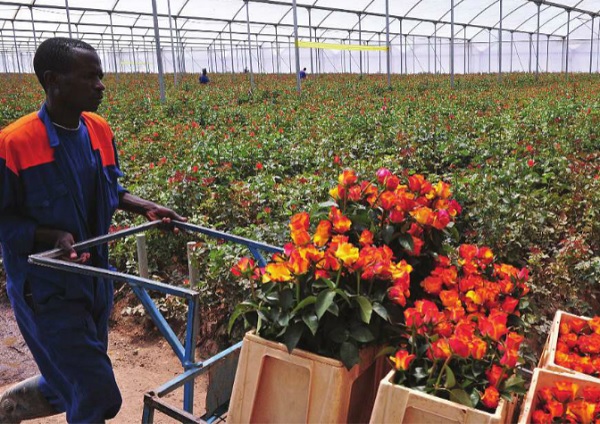
EAC at EPA crossroads
It’s another postponement, once again. With only a fortnight to the Oct.01 deadline for the East African Community (EAC) to sign the Economic Partnership Agreement (EPA) with the European Union (EU), the final signing has been extended. The Heads of State Summit sitting in Dar-es-Salaam, Tanzania, resolved to extend the signing by another three months – until January 2017- pending further consultations.
The disinclination to commit is being premised on fears that the regional block could lose millions of dollars in import taxes, struggling industries may eventually collapse, and the bloc may become so dependent on Europe for trade than on each other.
Apparently, the governments in the region and civil society organisations are increasingly speaking the same language; noting that the EPA now under discussion between EAC and Europe, has to be re-negotiated to in the interests of the region’s future development.
“The East African region needs to look back at its history,” says Jane Nalunga, the executive director at the South and Eastern African Trade Information and Negotiations Institute.
“In the 1980-90’s, the International Monetary Fund introduced the Structural Adjustment Programmes, leading to opening up of markets in the African countries, a scenario that saw many industries especially in the textile collapse. We feel that we cannot afford to do a similar mistake. It is time we look at EPA’s in a wider perspective.”
She is also concerned that the EU Raw Materials Initiative (RMI), which is also reflected in EPA, will impact negatively on the extraction, beneficiation, and trade in the natural resources of the region hindering achieving industrialisation and development goals.
The EU adopted the initiative in 2008 aimed at securing reliable and unhindered access to raw materials with the view of maintaining at least 30 million jobs for its people in industries.
Is the anti-EPA lobby winning the war? It’s too early to tell but the Sept. 08 EAC Heads of State meeting in Dar-es-Salaam, which was supposed to culminate in signatures being appended on the EPA, instead resolved to extend signing pending further consultations.
Tanzanian President John Magufuli said the summit had requested for three months to finalise on the clarification of the concerns of some of the remaining partner States before considering the signature of EPA as a bloc.
“The Summit called upon EU not to penalise the Republic of Kenya, and directed the Secretariat to communicate to EU on this matter,” Magufuli said.
The EAC was supposed to sign the EPA with the EU before the Oct.01 deadline, lest taxes are imposed on the Kenyan’s exports to Europe since it is classified as a ‘developing country’ unlike her regional counterparts which are categorized as ‘poor countries.’
Consequently, the European Commission has extended the deadline to Feb.02, 2017. Stefano A Dejak, the EU Ambassador to Kenya, said the signature process is ongoing with the countries desirous to move ahead in unison.
“We remain committed to the EPA reached with the EAC, which we still expect can be signed and applied by all concerned countries…Meanwhile the free market access of Kenya, which has signed the EPA, is extended beyond Oct.01 until the beginning of January 2017,” he added.
This summit’s decision came following Kenya and Rwanda’s decision to sign the EPA with the EU in Brussels, Belgium on Sep 01. Uganda is also hopping to sign the document soon, according to Trade Minister, Amelia Kyambadde.
The individual trade deals, however, are not legally binding since the negotiations have been handled as a bloc and not as an individual States.
Tanzania has insisted that signing the EPA, whose negotiation started in 2007, would hinder the country’s move towards industrialisation and thus deny youths the much-needed jobs as well as undermining the status of self-dependence. It also cited Britain’s vote to leave the EU.
Augustine Mahiga, the foreign affairs minister for Tanzania, said given that EU is an “industrial giant,” fledgling industries in his country would not be able to cope with zero-rated European imports.
“Tanzania will not sign the economic partnership agreement (EPA) until several issues are addressed,” Mahiga stressed.
This is the second time that Tanzania has thrown the region into diplomatic disarray over the EPA, after a similar move in 2014 that saw Kenyan exports mainly flowers, fruits vegetables, to the EU attract duty of up to 8.5% following delays in finalising the EPA.
But the taxes were temporarily suspended pending conclusion of negotiations that were initially expected to end this month. Similarly, Burundi says it won’t sign the trade deal because it is facing EU sanctions as a result of political unrest.
 The Independent Uganda: You get the Truth we Pay the Price
The Independent Uganda: You get the Truth we Pay the Price






and ypu call this dilly dallying? Are you paid by EU as propagandist? Kenya must sign for it has things to GAIN, Rwanda has no business to talk of but Tanzania and Uganda must negotiate well, irrespective of who has signed.